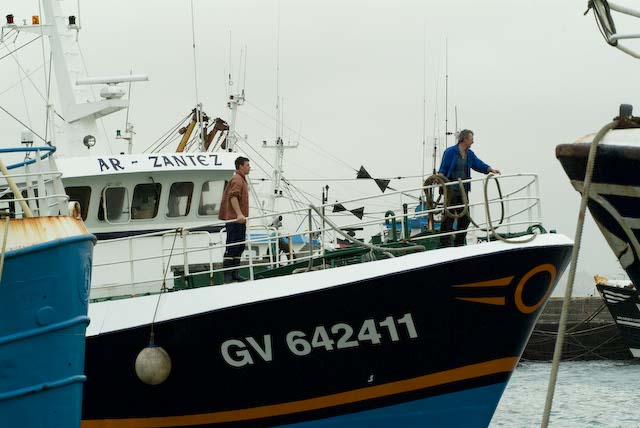 |
| The maritime district of Guilvinec has 216 boats of which 58 practice fishing offshore. |
In the absence of an agreement, access to British waters could be brutally prohibited in the aftermath of Brexit (from 30 March). What worry all the fishing industry?
Pulse taking in the maritime district of Guilvinec.
Jacques Pichon, director of the La Houle armament at Saint-Guénolé Penmarc'h. "I'm connected to Sky News (English news channel) all the time. I am debating in the British House of Commons. We are a bit of a spectator of all this. The problem is that you can not get into investment. About 50% to 60% of our fleet (ten trawlers of 23 m) fish in English waters. A share that is decreasing because of our strategic orientations. The notion of uncertainty is inherent to our activity, but the Brexit perspective added to the launch of the zero discharge at sea rule is still a lot. "
Soazig Palmer-Le Gall, director of Bigouden Armament in Guilvinec and president of the producer organisation (PO). "Nobody knows how it will end. We are very dependent on British decisions. If this leads to a hard Brexit, we will have to be very responsive and find an agreement as soon as possible. Between 20 and 30% of our vessels (eleven offshore trawlers) fish in the English areas. What is worrying is the new distribution of quotas that will ensue. We are used to clubbing on the head. We are not going to stop living. The proof: a new boat will leave the yards in May.
Serge Guyot, director of the Hent Ar Bugale armament at Loctudy. "We will only be partially impacted as about 20% of our vessels (six offshore) fish in English waters. Most of the time, they are in Irish areas and west of Brittany. Lack of visibility blocks investments. We are just suffering this situation. This is annoying. At our level, zero discharge regulations at sea are even more impacting. Nothing has been properly prepared on land. Everyone is trying to do the best. The year 2018 had already not been terrible with the drop in inputs and the increase in the price of diesel. Profitability is more difficult to achieve. In this context, it is complicated to put in place an innovative policy.
Guy Le Moigne, vice-president of the fisheries committee of Finistère. "We are waiting. This is the great mystery. I think we are heading towards a hard Brexit, that is to say the complete closure of British waters. For some boats, this simply means the end of their activity. For others, they will have to regroup in another zone and this will cause problems of cohabitation. Many small boats think they will not be affected, but that's not true. If the deep-sea fishery is affected, the whole area will be impacted. Infrastructures, like auctions, will no longer work. Offshore fishing accounts for 80% of inputs and 80% of jobs. We must not forget it.
* 140 vessels involved in Brittany, which make more than half of their turnover in British waters.
Full story courtesy of Steven Lecornu writing for Le Télégramme.